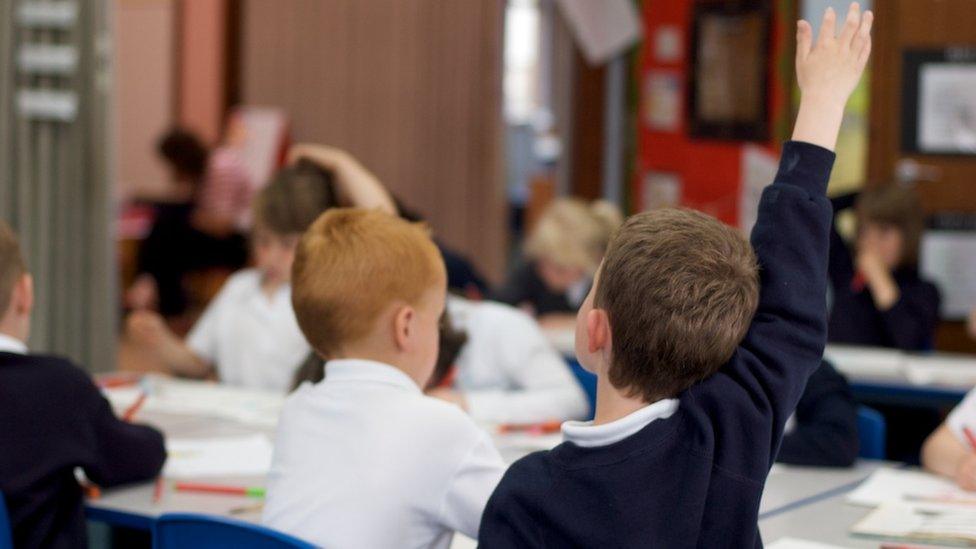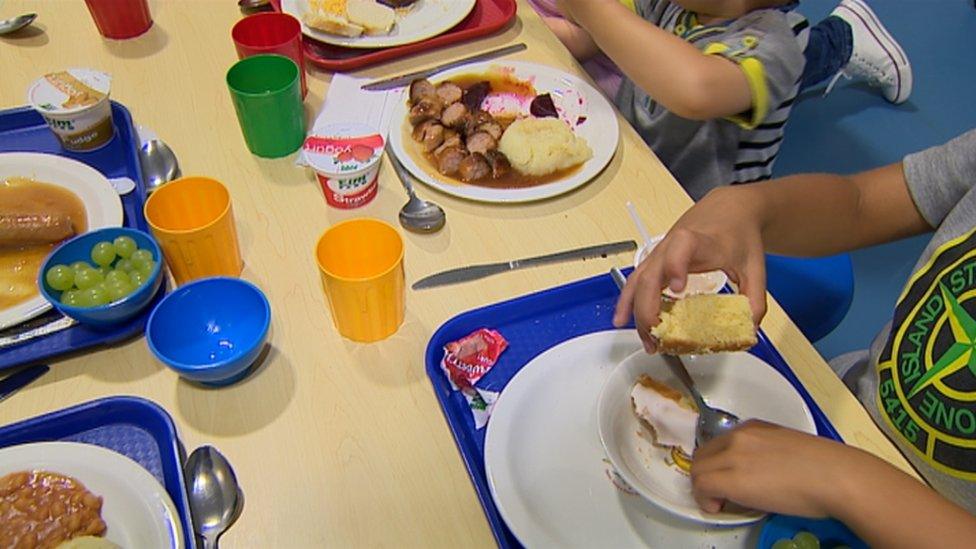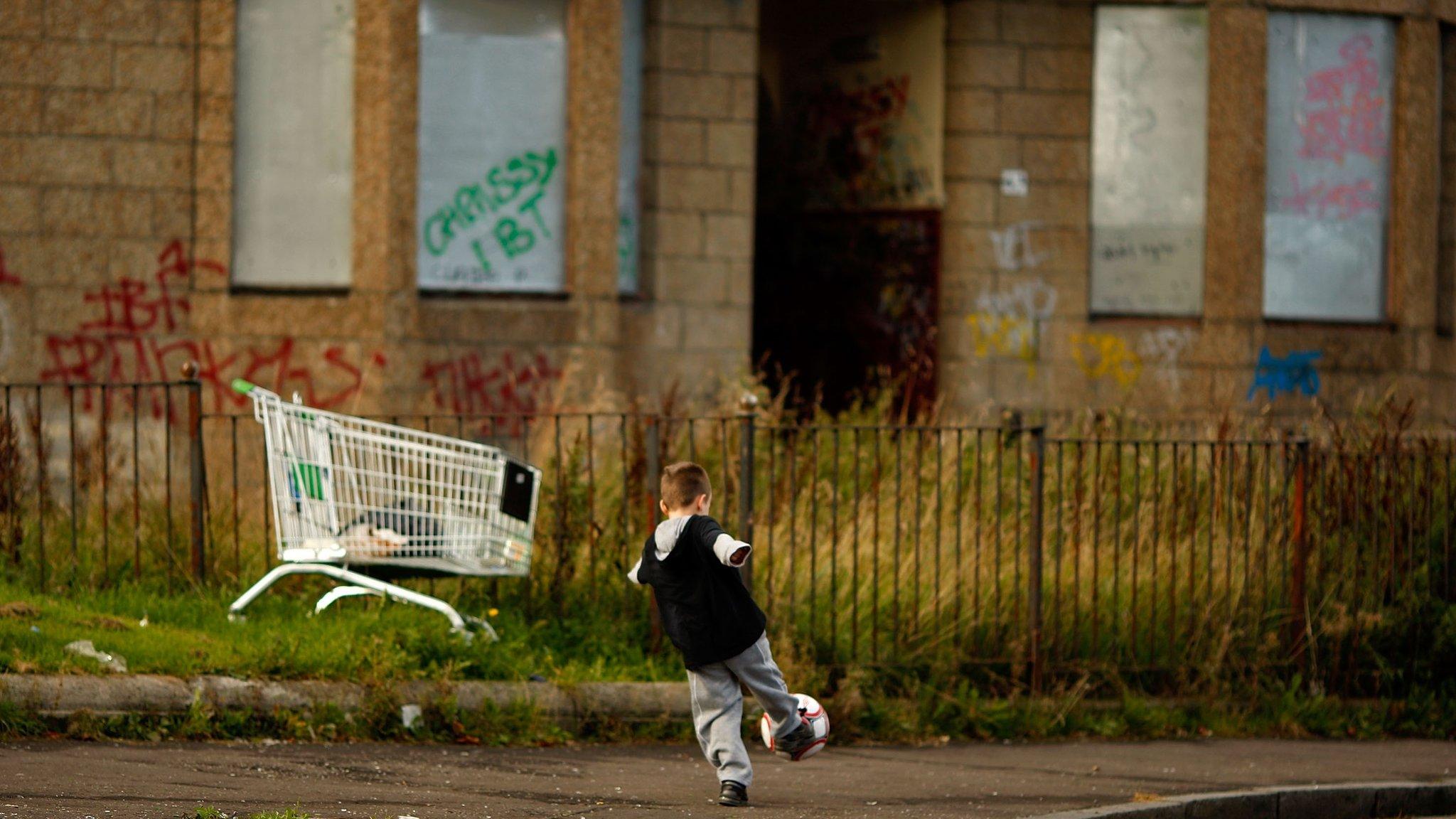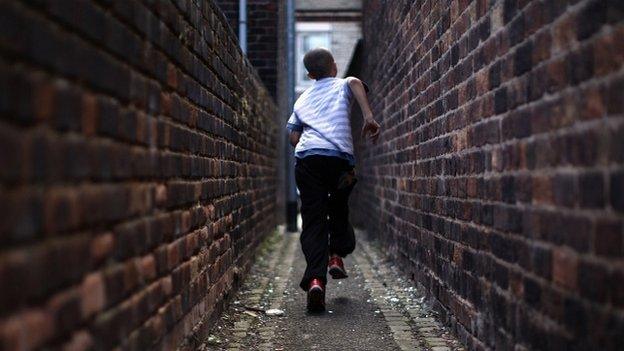Teachers survey finds more pupils 'going to school hungry'
- Published

An increasing number of pupils in Scotland are going to school hungry and in some cases are stealing food from classmates, according to teachers.
Teaching union the EIS carried out a survey as part of its work on tackling the impact of poverty in schools.
About half (51%) of those questioned reported a rise in pupils coming to school without any food.
The survey also found an increase in those taking free school meals and attending breakfast clubs.
More than 300 primary and secondary teachers responded to the autumn survey by the country's largest teaching union.
One in five (19%) identified an increase in the number of incidents of children asking for food and even stealing food from other pupils.

The Scottish government said free school meals for P1-P3 pupils were helping save families money
The union reported a 22% increase in the number of post-P3 children taking free school meals and a 27% rise in attendance at breakfast clubs.
It also identified a 7% increase in the number of parents or guardians requesting referrals to local food banks.
EIS general secretary Larry Flanagan said: "The findings offer a stark warning of the deep and damaging impact of poverty and the politics of austerity on children and young people across the country."
On the issue of pupils' health and well-being, 71% of respondents reported an increase in the number of children displaying signs of mental-health problems including anxiety, stress and low mood.
About half (52%) noted an increase in headaches, lethargy and weight issues among pupils.
'Positive actions'
Mr Flanagan said: "The fact that teachers are reporting such very high increases in both mental and physical health issues in pupils is a huge concern and highlights the true cost of political choices that have driven more families into poverty and widened the gap between the rich and the poor."
The Scottish government said tackling inequalities was at the heart of its programme and as well as encouraging employers to pay the living wage, it is investing £296m over three years to protect people from the UK government's "welfare cuts and austerity agenda which are increasing the numbers of children living in poverty".
A spokesman added: "These findings are truly shocking. Quite simply, no child should be going to school hungry. This government is taking many positive actions to tackle the impacts of poverty on our children.
"It is now one year since we introduced our policy to provide free school meals for all P1-3 pupils and in that year, families of eligible children who have taken a free meal will have saved around £380.
"As official figures show, around 80% of P1-3 pupils took a free meal in 2015 and we will continue to work with education authorities, schools and teachers to ensure continued promotion of their uptake."
- Published11 September 2015

- Published4 June 2015

- Published5 April 2015

- Published4 March 2014
